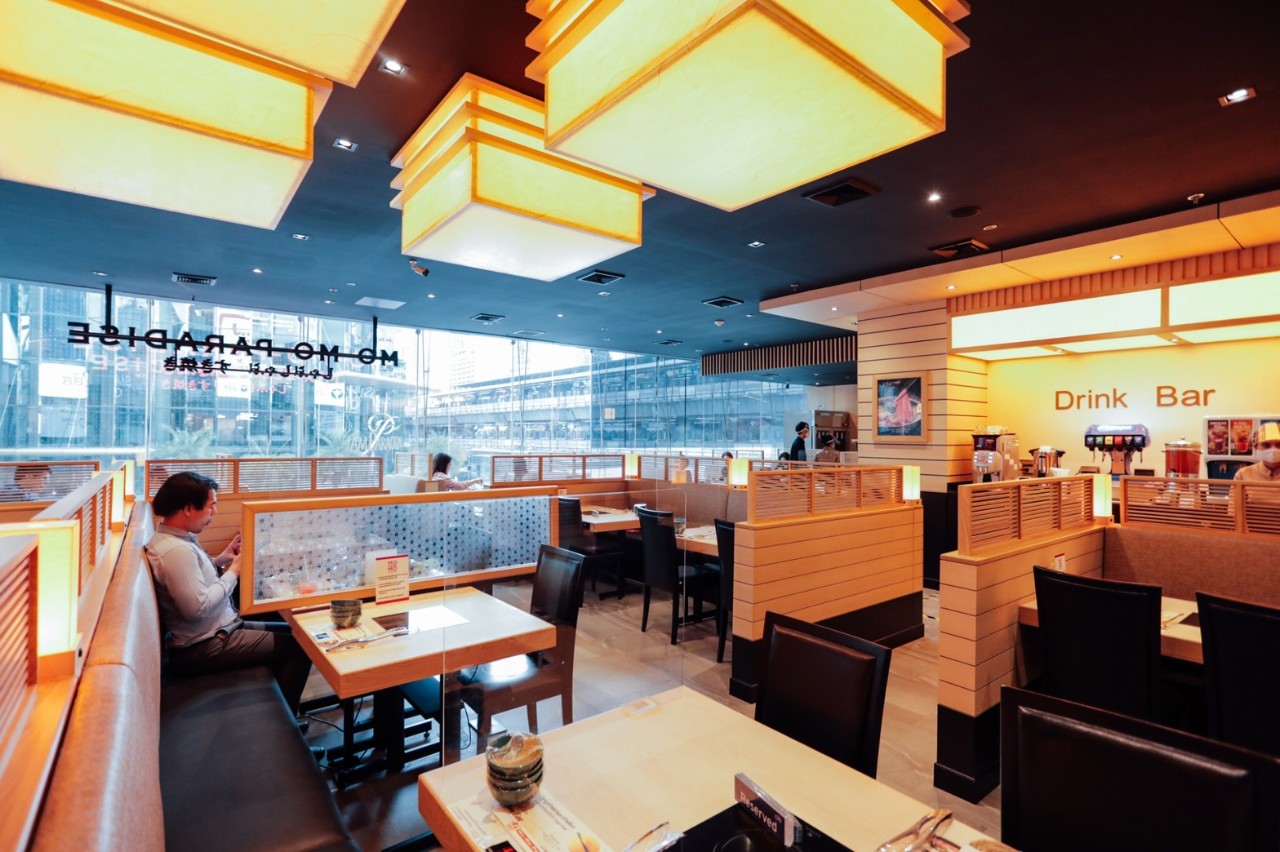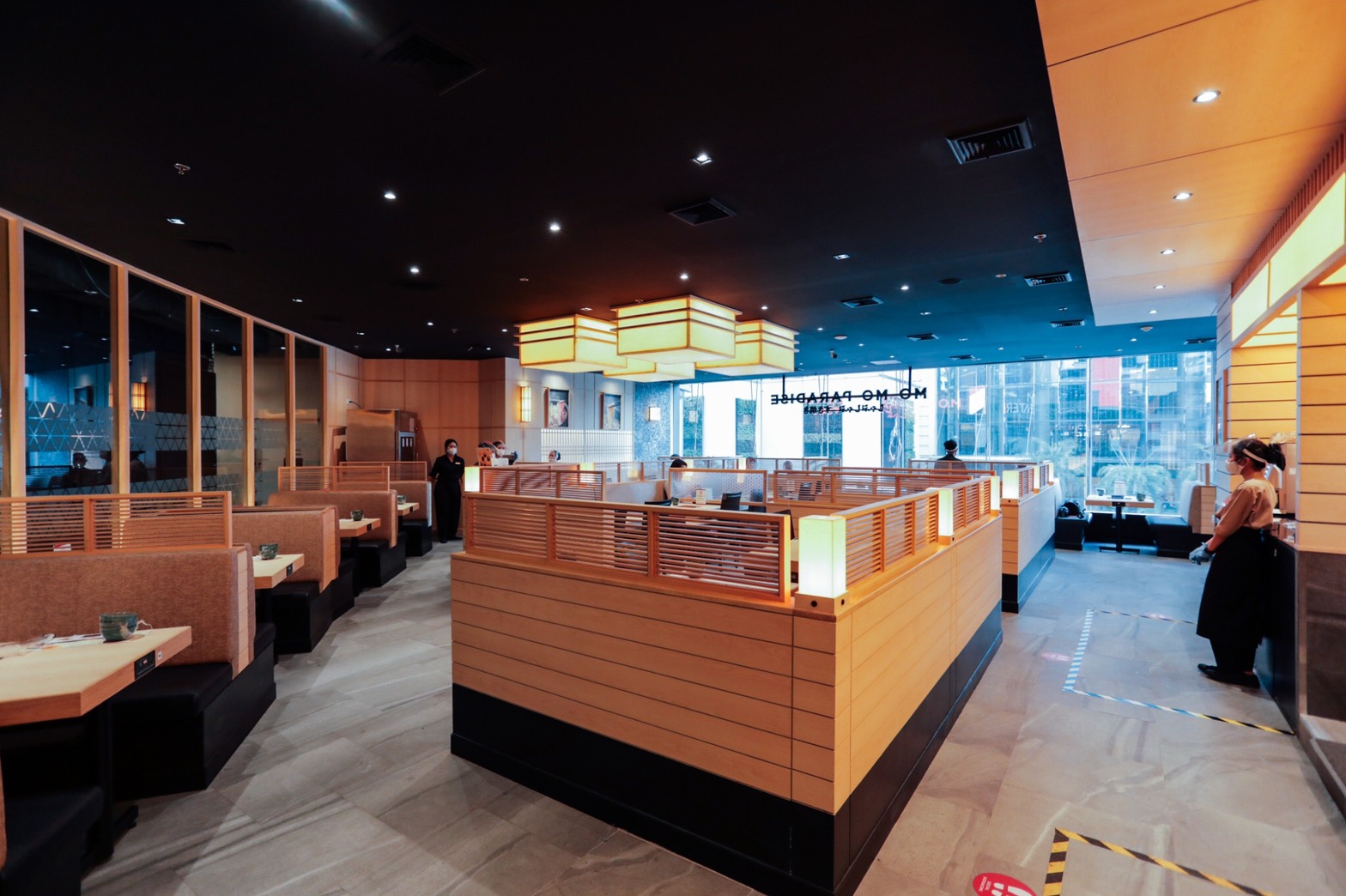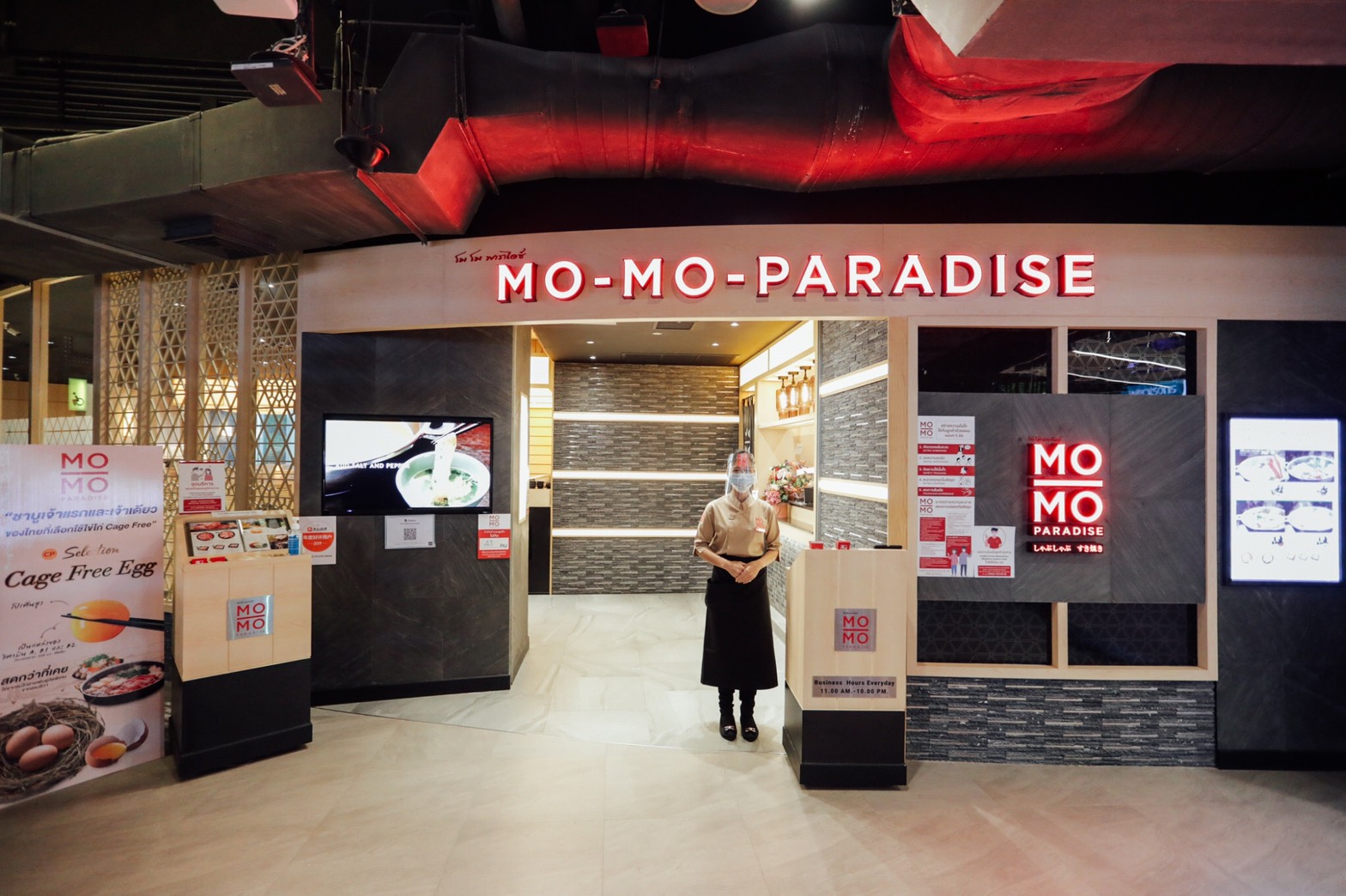I WANT
RELATED LINKS
I WANT
RELATED LINKS
RELATES LINKS
I WANT
RELATES LINKS
Services
Related Links
Use and Management of Cookies
We use cookies and other similar technologies on our website to enhance your browsing experience. For more information, please visit our Cookies Notice.
- Personal Banking
- Stories & Tips
- BUSINESS MAKER
- Cutting costs and managing cash flow – how restaurants can survive a crisis
- Personal Banking
- ...
- Cutting costs and managing cash flow – how restaurants can survive a crisis
Cutting costs and managing cash flow – how restaurants can survive a crisis
18-08-2021
Managing costs is an important factor in determining the fate of a business. In the restaurant business, fresh ingredients make up the majority of a restaurant's inventory. How well those are managed is therefore critical to a restaurant’s success. Cutting costs without compromising the quality of food and services is not an easy task. Surawech Telan, the owner of Mo-Mo-Paradise, shared with us his business strategies to effectively reduce cost and manage cash flow for the survival of a restaurant business in times of crisis.
The Birth of Mo-Mo-Paradise in Thailand
“Over ten years ago, I discovered authentic Japanese-style shabu when visiting Japan and loved it. Mo-Mo-Paradise has an interesting business model in terms of offering premium quality, delicious food, and good service, all while charging reasonable prices. I saw it as a good opportunity to promote this kind of restaurant to Thais who like Japanese shabu. So, I contacted the owners and bought a license to open Mo-Mo-Paradise in Thailand. Currently, Mo-Mo-Paradise operates twenty branches, most of which are in shopping centers. Currently, they are being hit hard by COVID-19 and have had to make a lot of adjustments.”

How difficult is it to deal with the COVID crisis?
“Daily sales dropped to only 3-5% of what they should be. Our 800 employees have been cut back to 500. The difficult part of the restaurant business, especially a buffet restaurant like Mo-Mo-Paradise, is that we must store a lot of fresh ingredients. Each lockdown has had huge impacts, but even before the lockdowns began I always calculated the right supply of raw materials for our “Build-to-Order” business to minimize waste. Our working team must consider various factors such as seasonal trends to match daily traffic.”
model. I think the important thing is that we pay attention to data collection and every single raw material, not just the main ingredients. Sometimes, secondary supplies of raw materials can make you lose more money. Cost control is not entirely about SKUs, but we need to pay attention to every detail.”
“In terms of rent, owners of commercial areas have been very supportive. However, we do what we can to control our own costs, which Mo-Mo- Paradise does quite well. We still have sufficient retained earnings to continue our business. In this fragile situation, each business may have different degrees of tolerance. The most important thing is to minimize our costs in order to keep the company running until the situation returns to normal.”
An important problem when buffets turn to deliveries.
“Personally, I believe that the dining experience is the most important thing for a restaurant. I don’t think that delivery provides as complete an experience as dining in the restaurant, so we only offered certain menus for delivery. But this year we faced a difficult problem, with restaurants in shopping malls being closed. All our Mo-Mo-Paradise branches are in shopping malls, so our sales turned to zero. Our team solved this problem by launching a new "Momo Paradise Beside You" campaign aiming for nationwide delivery. We carried out trial deliveries in Bangkok, vicinities, and upcountry provinces. We had to find a way to ensure that customers received their meals in the most perfect condition just like dining at the restaurant. Our team was immediately called in to discuss this and decided that if we had to do delivery, it must be the best possible so that customers can enjoy an experience as close to dining in a restaurant as possible. We have had to come up with new packaging, material, equipment, and temperature solutions before sending food to delivery riders so that it can reach customers in perfect condition. This has worked out so well that we plan to continue food delivery even after our restaurants re-open.”

The difficult part of reducing costs while maintaining the same quality
“In my opinion, effective cost-profit management is how we control our business. It's not about pushing the burden onto customers by raising prices. We can cut costs without compromising product quality. Everything must be of the same or better quality.
Mo-Mo-Paradise, therefore, focuses on cost control. The first thing that needs to be done in leaning costs is communication with employees. I held a meeting with all our branch managers, encouraging them to work together to achieve our cost-cutting goals. I had to learn about ways to control costs from many sources as best as I could so that customers can continue to receive the best products at the right price.
A good example of how we cut costs is by reducing wastage of fresh vegetables starting in 2015-2016. If vegetables aren’t fresh, our customers will notice it. We can’t serve food like that to customers, so there was quite a lot of waste when vegetables went bad. The first thing to do was to seriously collect information on current losses and set goals for improvement.
Data collection must be carried out accurately to ensure that we tackle the right spots. For our fresh vegetable problem, we collected data in two dimensions: 1) what were the vegetables with the highest wastage; and 2) what was the highest cost vegetable wastage. For example, we discovered that although Japanese Negi ranked fourth in terms of wastage after purple cabbage, baby corn, and lettuce, it had the highest cost.
We found out more about what caused the loss and come up with an Analysis Phase Summary to find the cause, tools, and methods for solving problems, such as revising our Standard Operation Procedures (SOP) to outline more details, such as training new employees to cut vegetables correctly, the quality of vegetables, and sizes. We also discussed our problems with suppliers. Finally, we looked into proper storage locations and temperatures for each vegetable. We had to re-arrange our refrigerators, put vegetables that need to be kept at a very cold temperature on top closest to the chiller and those that can be stored at higher temperatures in the lower decks, including FIFO (First In, First out) to make our supplies circulate better. Based on three months of data, we found that the average wastage cost was at 22%, so we aimed to lower it to 18% and eventually to only 14.6%."

How to deal with cash flow during a crisis?
We are experiencing a difficult time. However, despite that Mo-Mo-Paradise has been able to maintain a balanced cash flow. In normal times, we had to manage our cash flow account so that more money came in than went out. Any remaining cash was kept as a reserve. We need to control expenses, either in good or bad times and not just look at profit and loss. A business needs working capital for daily operations.
How should the restaurant business adapt?
“What we are going through will be good for our future. If a business has strong reserves, some of that should be invested in sustainable growth to keep the business running. In our case, that meant doing things such as delivering Mo-Mo-Paradise meals across the country. As for our future plans, I’m considering cloud kitchens, but it takes time to plan and set up that kind of system. Cloud kitchens have the advantage of lower costs with cheaper rent and fewer employees, usually, only 3-4 people compared to a normal branch with 20 people. However, physical restaurants are still important because when the situation returns to normal, people will want to come back to enjoy the restaurant experience. Therefore, we need to plan what to do once we reopen so that we can continue to offer higher standards, both in terms of service and building confidence in food safety. Mo-Mo-Paradise is still keen on both restaurant dining and delivery, and we’ll develop and improve to suit each service type.”
Source: "Secret Recipe to Adapt and Survive” webinar on the topic of "Cutting Costs and Cash Flow Management" by SCB SME held on Tuesday, 10 August 2021
